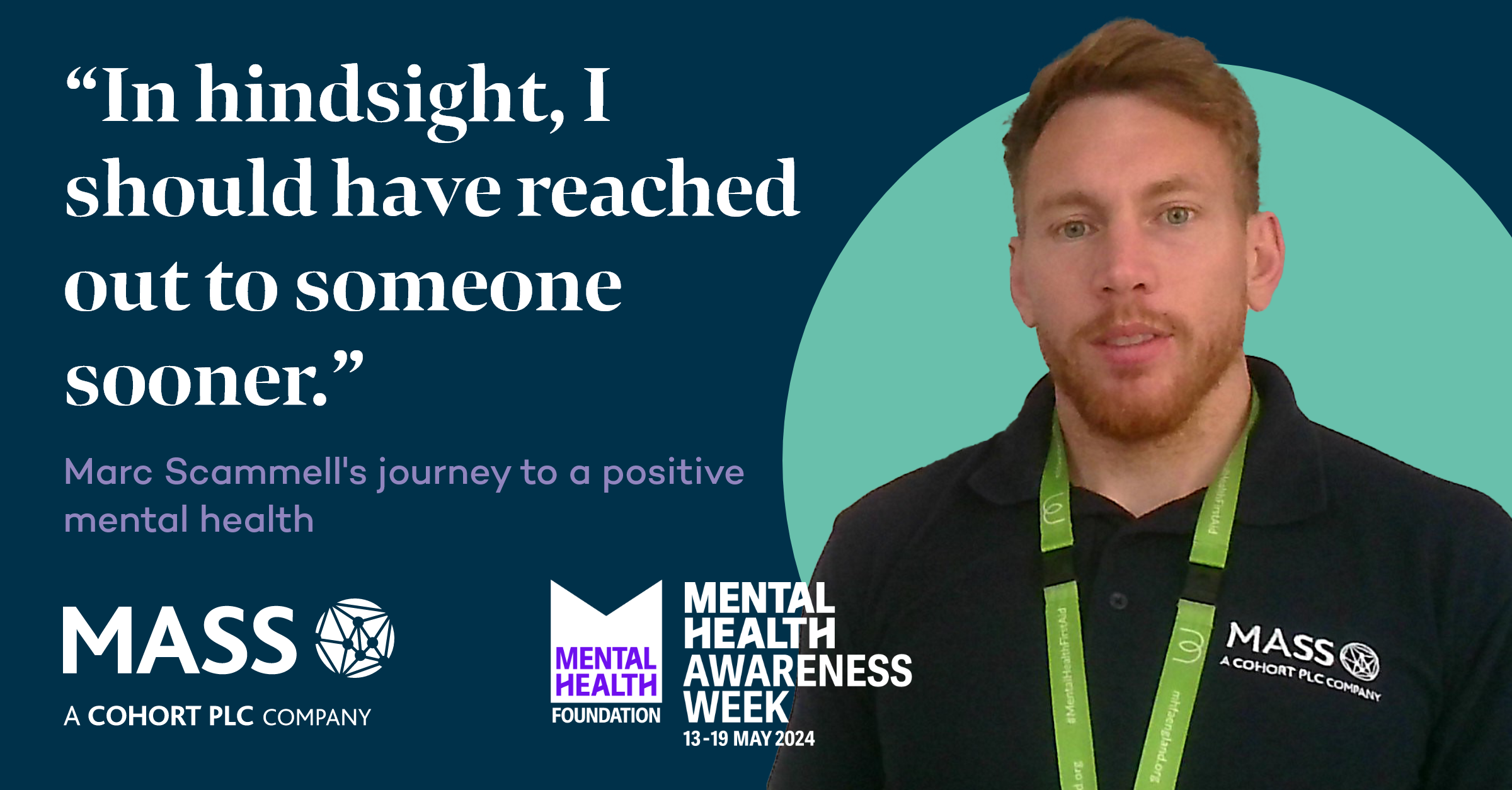It’s Mental Health Week and one of our Mental Health First Aiders, Marc Scammell spent some time talking to us about his mental health journey including why he became Mental Health First Aider here at MASS. Here’s what he had to say:
Tell us about your journey with Mental Health?
I’ve had a couple of personal experiences with poor mental health. My first instance probably started during my childhood and teenage years where my coping mechanism was food. I wasn’t really aware at the time that I had a problem with eating, but it led to a lot of weight gain in my mid-teens. I’ve since come to understand that I suffered with disordered eating and body dysmorphia, although I’ve managed to control this with plenty of regular exercise, sport and working with a nutritionist to improve my eating habits.
My worst mental health experience happened a couple of years ago in my previous job. We turned up to work to find out that my manager had suddenly passed away overnight.
Obviously, this came as a complete shock, and no one really knew how to react or how to help. Work became busier and with not much time to think or process what had happened I spiralled. I started to develop physical health issues as a result, and it was only at this point (months down the line) that I went to see a doctor who made me realise that I was suffering with stress.
Eventually I was able to get through the grief with support from my family and friends. In hindsight, I should have reached out to someone sooner.
How has MASS helped support you through your mental health journey?
From the very first interview I could tell MASS was a different environment to where I’d previously been. I felt comfortable being honest with Martin and Elliot about my reasons for looking for a new job and a different role.
I had a 3 month notice period so there was a long time between the interviews and actually starting work, but Sarah kept in touch with me regularly, often just to check in on how I was doing and then the team arranged a lunchtime social so we could all meet before I’d started.
I also remember in my first couple of weeks there was a World Mental Health Day and MASS organised a cross-site teams call session. I was surprised to see so many people attend, and it was clear that this was something MASS gave serious importance to. When the message went out asking for volunteers to be a Mental Health First Aider it was obvious to me that this was something I wanted to do so I could assist, or even prevent, someone going through what I had.
What’s it like being a Mental Health First Aider at MASS and why is it important to you?
Being a Mental Health First Aider here at MASS is an opportunity to make a positive impact on others and help breakdown the stigma of talking about mental health.
Mental Health is just as important as physical health, and in many ways are linked to each other. My personal aim as a Mental Health First Aider is to promote this link and support colleagues to improve both.
The theme for this year’s Mental Health Awareness week is “Movement”, how can this help improve our mental health?
This year’s theme is quite apt for me as “moving” was probably what helped me the most. I started to get into running as a way to get out of the house, but I always need a challenge to motivate me so I started to see if I could go further each time. Before I knew it, I was running my first marathon in lockdown, and even entered my first proper race when events started to open again.
I don’t think everyone needs to suddenly start running dozens of miles a week, movement can be going for a walk with friends, joining a sports team, or other activities such as swimming, cycling or dancing.
Do you have any other tips for people struggling with their mental health?
I’d encourage anyone worried about their mental health to talk to someone. Speaking to someone outside of your situation can help you realise options or solutions that you may not have considered. It’s also important that we take proactive action to maintain good mental health too:
- Good quality sleep.
- Identify causes of stress and try to reduce it.
- Practice self-care and take time to do things you enjoy.
- Be kind to yourself, challenge negative thinking and encourage positive thoughts.



